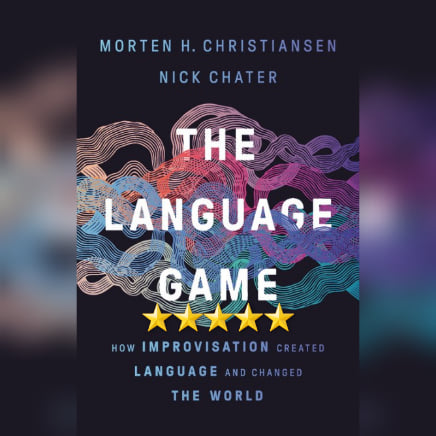Fascinating. This is a book that basically argues that Noam Chomsky had some great ideas, but ultimately was quite a bit wrong and quite a bit off. And yes, that is an oversimplification explicitly designed (by me) to hook you into reading this book while also giving you an idea of the ultimate direction here. The authors are consistently afraid of “anarchy” *even while actually touting its exact benefits* – their entire argument is that language (and humanity) evolve best and most usefully outside of the bounds of rules (and thus outside the bounds of rulers – and since the literal definition of “anarchy” is “without rulers”… 😉 ). Which is where they ultimately come into conflict with Chomsky’s ideas of a universal language and a universal grammar machine. For someone that is decently educated but well outside the specific field at hand (Bachelor of Science in Computer Science), I found this to be a solid examination of the topic in language that I could easily follow- whenever technical discussions within the field were at hand, Christiansen and Chater did a solid job of using their running metaphor of a game of charades to explain the differences and similarities in what they were describing using a system that so many of us know fairly well and can relate to very easily. As I said in the title here, truly a fascinating book, one anyone “of the word” – and thus, any reader, since we are *all* people “of the word” – should read. Very much recommended.
This review of The Language Game by Morten H Christiansen and Nick Chater was originally written on December 1, 2021.

